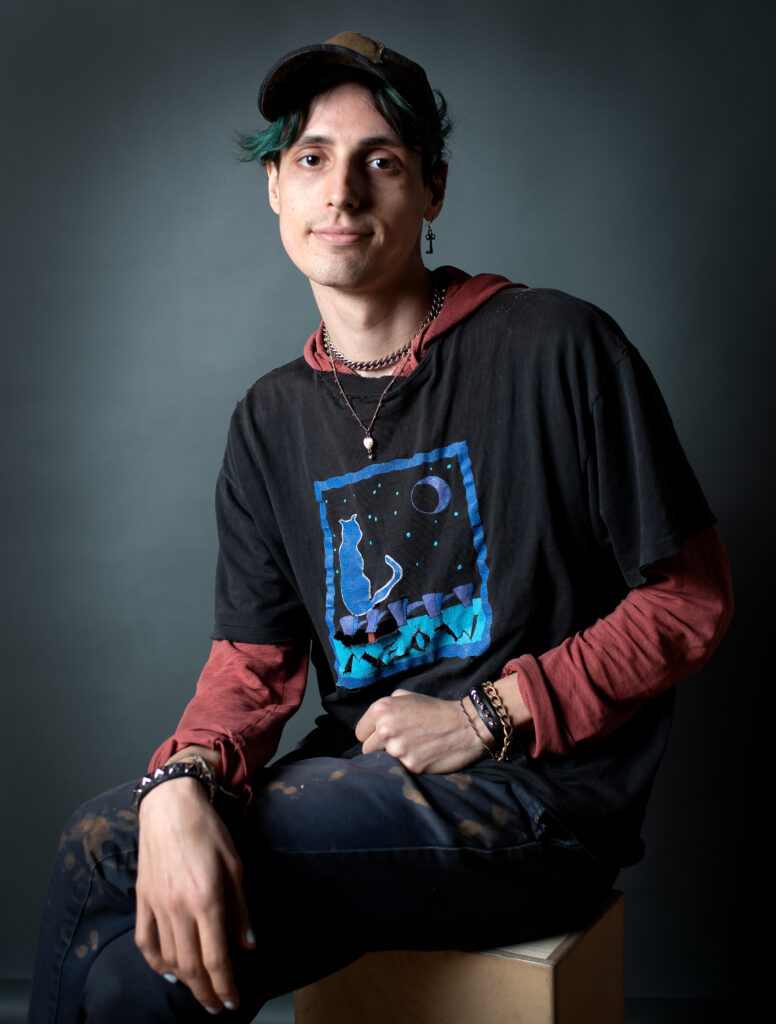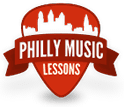
Piano
Robin Meeker-Cummings
They/Them
B.A. Music Composition, New England Conservatory
Classical, Jazz, Improv, Theory and Composition
Robin Meeker-Cummings is a composer, sound artist, and improviser who studied Composition at New England Conservatory. They spent years active in the Philadelphia experimental and new music scenes organizing concerts and performing improvised electronics. At school, they have been writing electronic, electroacoustic, and acoustic classical music many of these works have been performed at New England Conservatory. In the Summer of 2018, they attended a 9-day long Program in the country side near Barcelona focused on sound art with found sounds. Robin has been performing improvised electroacoustic music. using found objects, bells, and parts of wind instruments they create thick textures and pointillistic gestures with the use of live processing. Robins development in electroacoustic composition has been encouraged by attending the Splice festival. They took classes about composing for electroacoustic instrumentation and had one of their pieces premiered at this festival. Robin has been working with multichannel spatialization and had a piece for 4.1 speaker orientation premiered at the ICMC in NYC in the summer of 2019. In the summer of 2021 ensemble Sunono Giallo Performed Robin’s electroacoustic trio as part of the ilSUONO composition Academy in Sansepolcro, Italy.
When did you begin playing music, and why?
I started playing bass guitar when I was 8 because my dad’s friend had a child size bass, and his other friend played bass. I learned House of the Rising Sun and Stir it Up.
What other instruments do you play, and what is your experience with them?
I continued playing bass throughout my early teenage years, but I eventually started taking piano and vocal lessons around the age of 14. I grew to like playing the piano more than the bass, I loved playing bass in a group but alone I found it more interesting to work with a polyphonic instrument. Around the age of 15 I got a loop pedal, a microphone, as well as some computer programs and started experimenting with sound-art and experimental music. This really pushed my creative drive, despite still being interested in the jazz and classical piano I was learning in lessons. I eventually combined my interest of experimental music with classical music and started digging into contemporary classical music, music theory, and electronic music. I then started taking music classes at Community College of Philadelphia around the age of 16. This encouraged my interest in composition, which I decided to major in. A few years later I moved to Boston to study composition at the New England Conservatory. While still playing piano throughout these years my interest in experimentation and composition drove me to learn many instruments. Although I consider piano my main instrument I’ve spent time with guitar, clarinet, saxophone, flute, trumpet, violin, and banjo. I enjoy working hard on classical piano pieces, but I also like to sit back and play a folk tune on fiddle or violin.
What are your personal goals as a musician?
To learn, listen, explore, and play. Music has always been such a big part of my life from long-term projects to singing while I walk around. There are a lot of different media that I would love to further explore from composition to performance to continuing to hone my skills. Traveling and making connections has been a great part of music for me, whether traveling for a residency or composition festival or touring in a different city each night.
Do you have a memory of a time when a musical concept or technique really clicked? Something you’ll remember forever?
One of my piano teachers encouraged me to practice with a blanket over my hands so I could not see the keys. This was extremely challenging and irritating but after a short time I felt comfortable without looking at the keys. This new skill instantly improved my sight-reading skills because I could solely focus on the reading without worrying about where my hands were.
What is your favorite piece of advice from one of your past (or current) teachers?
Practice and musical exploration are both valuable but should be approached differently.
What was your most challenging moment learning an instrument
Being able to comprehend multiple concepts at the same time. A clear example is finger independence with the piano, reading 4-part harmony as 4 independent lines rather than block chords. Another example would be controlling both feet and hands while playing drums. Being able to split your mind and concentrate on multiple things at once is a useful skill for all instruments.
What is your biggest musical achievement?
It is hard to pick, having my trio “Locus” premiered by the ensemble Suono Giallo in Italy was super exciting, and my 1st composition performed outside of America.
Favorite thing about teaching?
Getting to explore music with another individual is such a rewarding process. I have learned so much by teaching, having to explain a concept even if you know it very well can make you understand it in ways you never imagined.
What is a piece of advice you would like to share with anyone learning music?
It is very important not to get frustrated when learning something new and not to think that you messed up or made a mistake. This is the learning process, and it is a wonderful thing.
Personal music projects:
I write contemporary classical music, electronic ambient soundscapes (and other types of electronic music), and I DJ. All this music is sometimes performed live either in a concert hall or some strange place.
